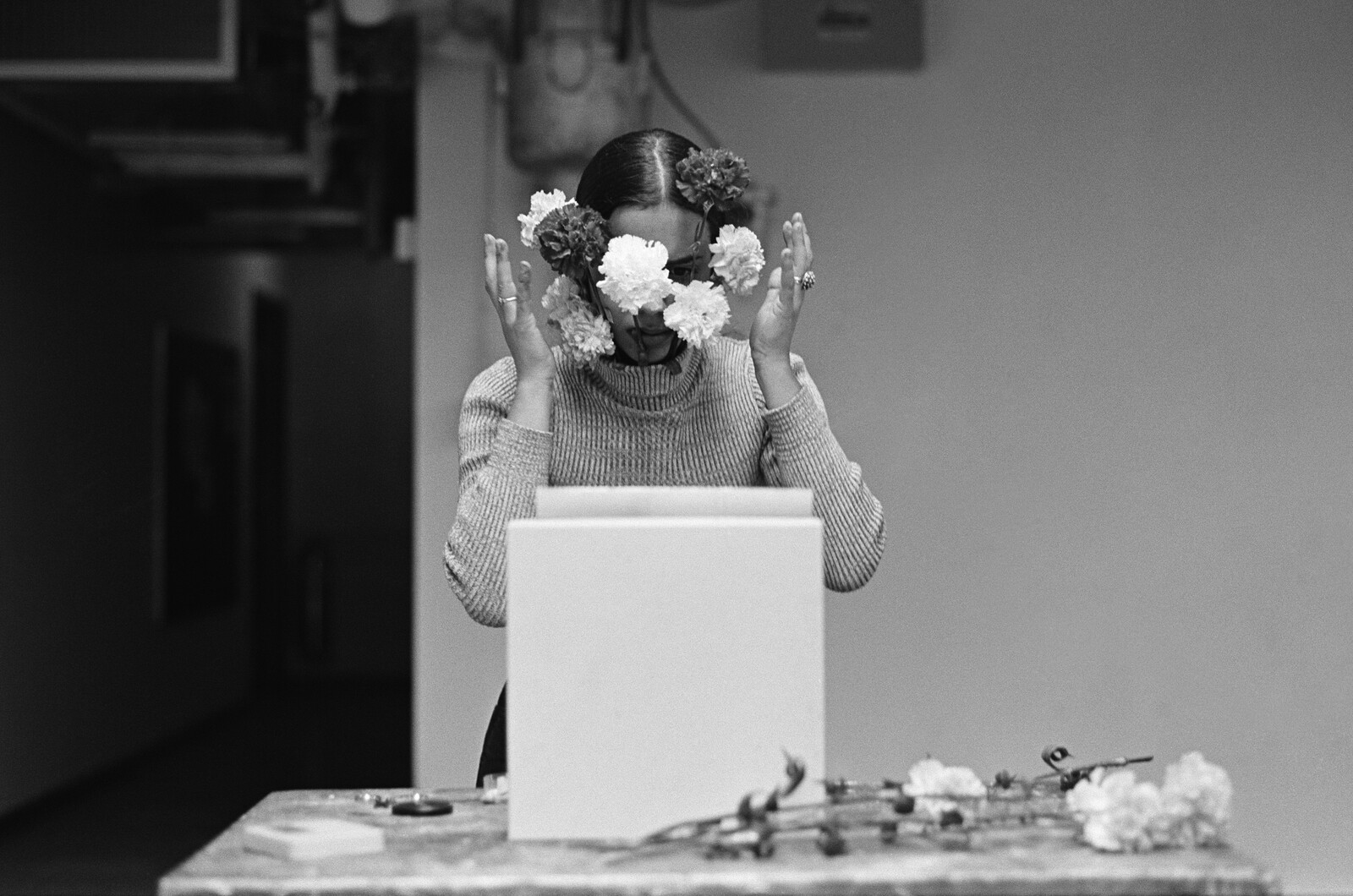January 27–May 19, 2024
MUSAC is pleased to present its exhibition programme for 2024, which includes Ana Mendieta: Search for Origin until May 19, as well as a major showcase of Ai Weiwei’s work starting in November. Additionally, there will be two exhibitions featuring Spanish artists Prudencio Irazabal and María Luisa Fernández, along with Epilogo [Epilogue], a yearly presentation of the MUSAC Collection.
Ana Mendieta: Search for Origin
January 27–May 19 -2024
Search for Origin is the most extensive exhibition organised in Spain devoted to Ana Mendieta (Havana, Cuba 1948–New York, 1985). The show brings together about one hundred works in spanning seventeen years of the artist’s production (1968–1985), including 13 previously unseen pieces.
The exhibition, curated by Rahmouna Boutayeb, Vincent Honoré and Álvaro Rodríguez Fominaya, explores in particular how the artist never ceased to reinvent herself, developing an original, ephemeral sculptural language, at times performative in act, nourished by her research into primitive myths and rock art. The exhibition focuses especially on revealing her relationship to the visible and the invisible, her way of rendering the unspeakable intelligible through the trace of the body, and how it relates to nature.
Conceived by MO.CO Montpellier Contemporain (France) and co-produced with MUSAC, Museo de Arte Contemporáneo de Castilla y León, in collaboration with Musée des beaux-arts La Chaux-de-Fonds (Switzerland).
Epílogo
January 27, 2024–January 12, 2025
Epílogo (Epilogue) proposes a narrative of the MUSAC collection through works that in one way or another dwell on the idea of history and its transmission through heritage. The show, curated by Gilberto González, brings together pieces by 24 international artists and is conceived as an organic project in permanent transformation through site-specific installations by artists David Bestué, Diego del Pozo, Belén Rodríguez and Carme Nogueira.
Prudencio Irazabal: Counter-distance
June 8–October 20, 2024
Prudencio Irazabal’s (b. 1954 in Puentelarrá, Spain) work stems from an analysis on the origin of painting and a reflection on the abstract currents that emerged from mid 20th century art. After graduating in Fine Arts, he was the recipient of a grant from the Diputación de Guipúzcoa in order to further his studies at Columbia University. He moved to New York in 1986 where he lived and worked for the following two decades.
His show at MUSAC, curated by Mariano Mayer under the title Counter-distance, brings together both new works and pieces produced in the 1990s that allow a background reading on chromatic materiality, the links between disintegration and transformation or the visual variables modelled by the temporality of our attention.
María Luisa Fernández: 068.807.218. Blood in Gold
June 8–October 20 2024
María Luisa Fernández’s (b. 1955, Villarejo de Órbigo, Spain) artistic practice includes object and pictorial production that often questions the representation of the figure of the artist and especially of women. With a language close to post-Minimalism, Conceptualism and the Basque sculptural tradition, her works display irony and humour, incorporating puns and double meanings, as well as the recurring presence of nature.
The exhibition 068.807.218. Blood in Gold, curated by Segio Rubira, presents the most recent production by the artist, revisiting two series she has already worked on -Artistas ideales (Ideal Artists) and Melenas (Manes) - to add new layers of meaning and explore other materials.
Ai Weiwei
November 9, 2024–May 18, 2025
MUSAC presents a comprehensive solo exhibition by Ai Weiwei (b. 1957, Beijing, China), one of the largest shows devised by the artist to date. The show, curated by Álvaro Rodríguez Fominaya, displays a major selection of his toy brick works, which he first started in 2007. For this project, the artist has created a version of the painting by Goya El 3 de mayo en Madrid (Los fusilamientos) [The Third of May 1808 in Madrid or the Executions], in which he pays tribute to the Spanish painter. The exhibition also includes large scale installations reflecting on his major preoccupations like the bamboo sculpture Life Cycle (2018), made in response to the global refugee crisis or La Commedia Umana (2017-2021).
Hours
Winter: October 1–May 31
Tuesday to Sunday, 11am–2pm and 5–8pm
Summer: June 1–September 30
Tuesday to Friday, 11am–2pm and 5–8pm
Saturdays, Sundays and holidays: 11am–3pm and 5–9pm







